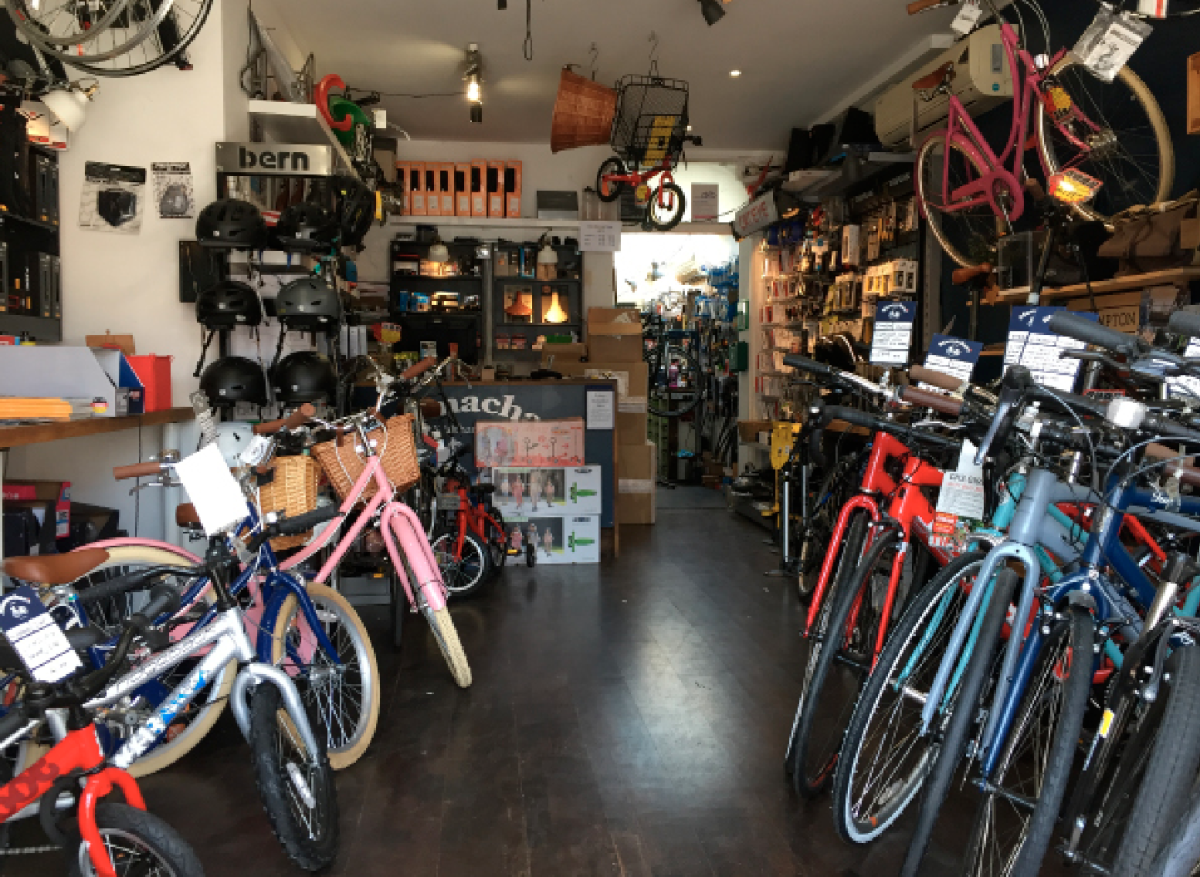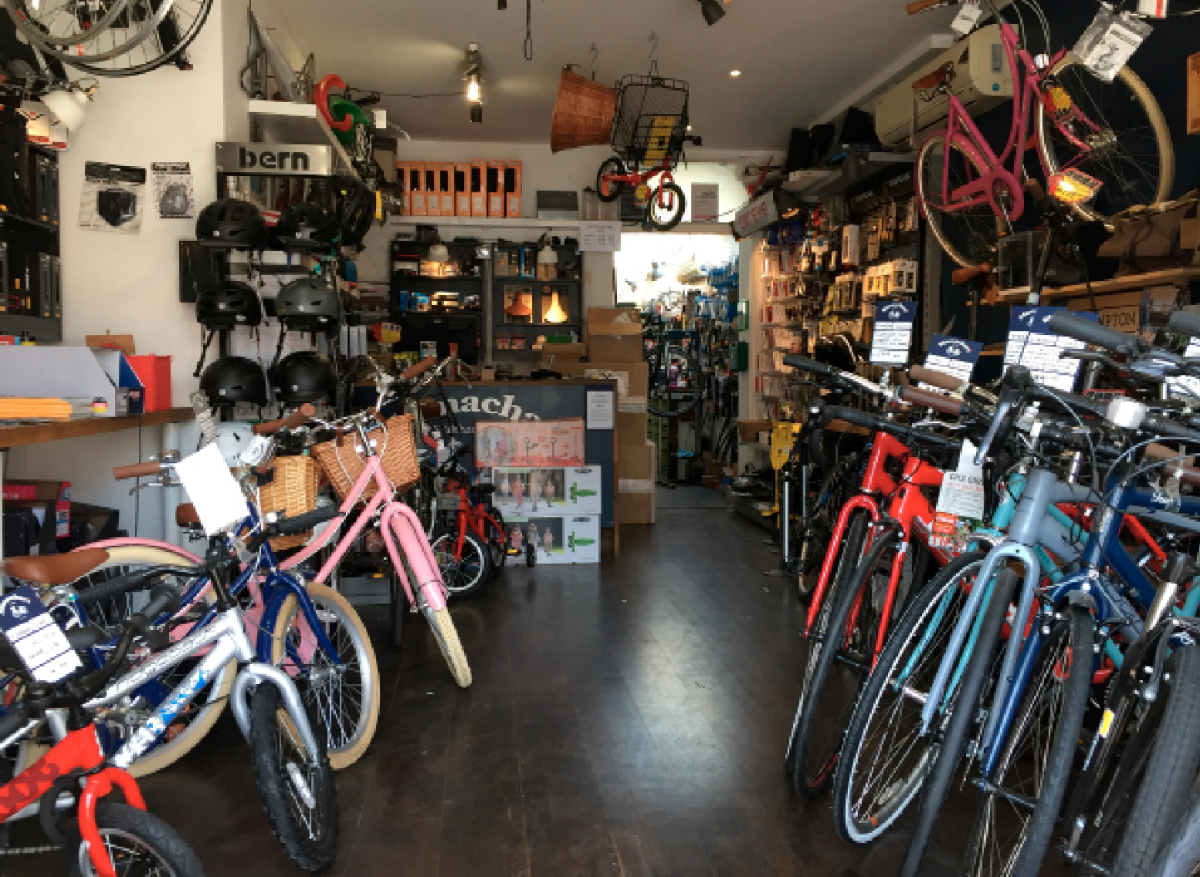
Can you tell us a little about how Mamachari began?
Mamachari started out in 2013 importing and selling second-hand Japanese city bikes and child seats. Now we have two stores and do all kinds of (mainly British) bikes and accessories as well as servicing and repairs.
What makes Mamachari a successful shop?
We are firmly focused on what our customers need as well as what they want or aspire to. This is important because although we enjoy using quality bikes and kit ourselves, it may not be appropriate for our customers and not everyone has the budget for it. Of course, we cater for those who want to spend a bit more on performance luxury products but not to the exclusion of everyone else. We can’t afford to alienate or turn anyone away these days.
What are the key contributing factors to your success?
Being friendly, open and honest with our customers and freely giving time and advice is vital. Time and again customers have told us woes of condescending bike shop staff and being told how their beloved bike is a pile of junk and they should just buy a new one instead of repairing it. We also carry a ‘curated’ range of products rather than just having bits and bobs of whatever. A lot of thought goes into selecting products for our stores and as such when customers come to research or buy we can give comprehensive and detailed information on the merits of the product. More recently we’ve put a lot of effort into making our brand more visible online. Having an e-com store even if you don’t plan to sell a lot online is important in helping customers find you.
Why are bike shops struggling at the moment?
The slow pace of economic growth particularly in the high street retail sector is definitely a general contributing factor. I think many bike shops have been used to operating a certain way and have been perhaps a little unwilling to move with the times. What worked in bicycle retail 10-15 years ago may not work well now. I know of several well-established bike shops that have closed in the last two years because they were not in sync with the way retail trends have shifted. Problems I’ve seen include excessive inventory holding, focusing too narrowly on a single market segment and just being too complacent in the face of competition. With the maturity of the online marketplace, we all know too well the race to the bottom is not something that IBDs can compete with. But at the same time, we can’t go on trying to fight against them. They’re here to stay and we have to accept that. What we can do is focus on what we (IBDs) can do that online stores cannot, and incorporate that into our USP.
What should the industry be doing to move forward?
I think the retail industry needs to focus on delivering high-quality customer service and being responsive and adaptive to consumer needs. The more attentive we are to consumer needs and wants, the more likely we are to win their custom. More can also be done from higher up the retail supply chain. Whilst we understand that brands and distributors need to generate enough revenue to survive and have started selling online direct, more resources should be channelled into supporting IBDs. Many brands now recognise that the best place for customers to engage with complex products like bicycles is in a local bike shop.
How do you plan on safeguarding your shop for the future?
It’s a constant worry and I guess that in itself is part of our strategy. We’re constantly looking at what we’re doing and asking ourselves ‘Does this still work for us? Does it still deliver the best for our customers?’. No one can predict the future but I think that as long as we keep listening to our customers and being adaptive and flexible then we will have the highest chance of sustainability. We will also continue doing as we have from the very start by limiting exposure to financial risk – we don’t borrow money and we keep tight reins on our expenditure on credit terms.

